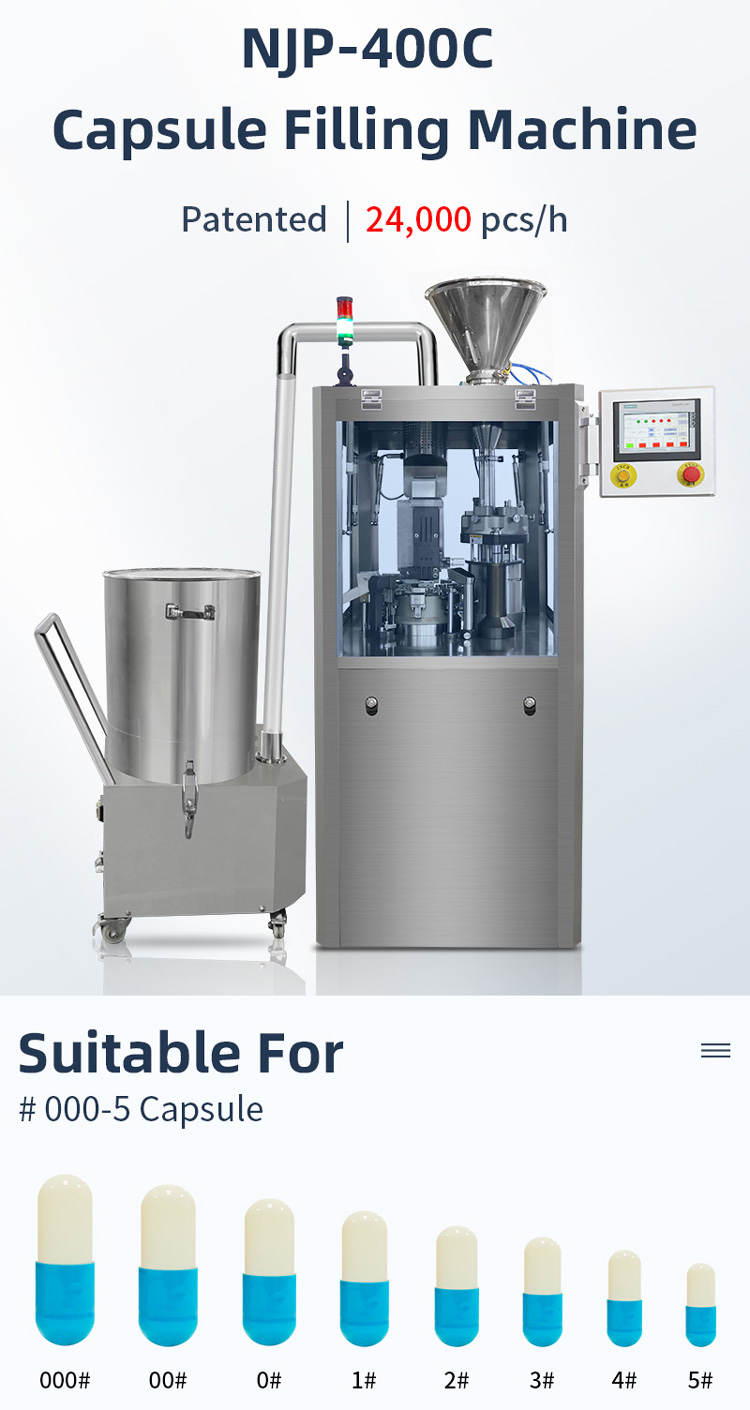Categories
New Blog
Tags
You are about to explore an in-depth guide detailing the various factors that affect the effect of the capsule filling machine. In this article, you will uncover technical, operational, and quality-related factors that influence the performance of both semi Automatic capsule filling machine and Automatic capsule filling machine systems. As a seasoned industry expert, I will share insights to help you optimize production, reduce errors, and ensure your machinery delivers consistent capsule quality. This comprehensive guide is designed for technical directors, packaging engineers, and quality managers who strive to maintain excellence in their production lines.

You must first grasp what a capsule filling machine is and why it is a critical asset in pharmaceutical manufacturing. Capsule filling machines are engineered to automate the process of filling capsules with precise dosages of active ingredients. Their effectiveness is influenced by various factors ranging from machine design and technological integration to quality control processes.
When considering capsule filling machine options, you mainly encounter two types:
Semi Automatic Capsule Filling Machine:
Automatic Capsule Filling Machine:
These machines form the backbone of efficient capsule production, and your choice depends on your production capacity, quality requirements, and operational budget.
You need to consider a range of factors when evaluating the effect of the capsule filling machine. These factors span from technical specifications to environmental influences and operational practices. Understanding these elements will allow you to optimize machine performance and output quality.
One of the primary aspects influencing your capsule filling machine’s performance is its design and engineering. You should evaluate the following design elements:
Your operational practices significantly affect the performance of the capsule filling machine. Effective management of these practices ensures smooth production and high product quality.
Proper calibration is crucial to maintain the efficacy of any capsule filling machine.
Initial Calibration:
Regular Recalibration:
Standard Operating Procedures (SOPs):
Routine maintenance and proper care are essential for long-term machine performance.
Preventive Maintenance:
Spare Parts Management:
Operator Training:
You must also account for external factors that can influence capsule filling machine effectiveness. These range from production environment conditions to external regulatory pressures.
Environmental factors significantly affect machine performance and product quality.
Temperature and Humidity:
Clean Room Standards:
Facility Layout:
Adherence to regulatory standards is non-negotiable in the capsule filling machine operation.
GMP Standards:
Certification Requirements:
Quality Control Protocols:
Your relationship with the equipment manufacturer significantly impacts the machine's long-term performance.
You should opt for manufacturers who offer extensive pre-sale and post-sale support.
Pre-Sale Consultation:
Post-Sale Support:
Extended Warranties and Service Contracts:
A manufacturer with a robust global service network offers peace of mind.
Regional Support Centers:
Remote Diagnostics and Monitoring:
For a clearer understanding, you should compare the characteristics of semi Automatic and Automatic capsule filling machines side by side. The table below summarizes their key features and benefits.
| Feature | Semi Automatic Capsule Filling Machine | Automatic Capsule Filling Machine |
|---|---|---|
| Operation | Manual loading with automated filling process | Fully automated process, from capsule loading to sealing |
| Production Speed | Moderate speed; ideal for varied capsule sizes | High-speed; best for large-scale, continuous production |
| Filling Precision | High precision with human oversight and control | Consistently precise with minimal human intervention |
| Flexibility | Adaptable to multiple formulations and sizes | Best suited for standardized production with uniform capsules |
| Maintenance | Routine manual calibration required | Integrated diagnostics reduce manual intervention frequency |
| Cost Efficiency | Lower initial cost, with flexibility in low-to-medium scale production | Higher upfront investment, optimized for long-term savings |
This table helps you visualize the strengths and limitations of each machine type, ensuring you choose the equipment that best aligns with your operational requirements.
Below is a comprehensive table summarizing the critical factors you must consider:
| Factor Category | Key Considerations | Impact/Benefit |
|---|---|---|
| Machine Design | Precision engineering, material quality, modular design | Enhances dosing accuracy, durability, and flexibility |
| Technological Integration | Automation, sensor technology, digital controls, software integration | Improves consistency, efficiency, and real-time monitoring |
| Operational Practices | Calibration, routine maintenance, operator training, SOP adherence | Reduces errors, downtime, and ensures consistent quality |
| Environmental Factors | Temperature, humidity, cleanliness, facility layout | Maintains stability and prevents contamination |
| Regulatory Compliance | GMP, FDA, ISO, CE, quality control protocols | |
| Cost Considerations | TCO, energy consumption, ROI, maintenance costs | Optimizes long-term investment and operational savings |
| Manufacturer Support | Technical consultation, after-sales service, extended warranty | Provides reliability and peace of mind |
This table is a vital tool to guide your decision-making process when evaluating capsule filling machine performance.
In summary, you now have a comprehensive understanding of the factors that affect the effect of the capsule filling machine. By integrating robust machine design, advanced technological integration, diligent operational practices, and proactive maintenance, you can achieve superior dosing accuracy, consistent product quality, and reduced production costs. For tailored expert advice or further consultations, leave a comment or contact us directly. Your investment in knowledge today secures optimum production performance tomorrow.